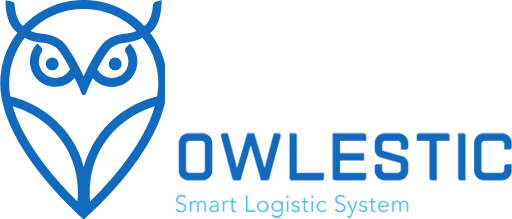In-House vs. Outsourcing? A Strategic Decision in Logistics Management for Distribution Companies
29 Dec 2024In the modern logistics landscape, distribution companies face a wide array of challenges in managing their logistics operations efficiently. One of the most critical decisions they must make is whether to keep their logistics operations in-house or outsource them to third-party service providers. Both approaches come with their own advantages and disadvantages, and choosing the optimal one can significantly impact the company’s efficiency and cost-effectiveness. In this article, we will explore the pros and cons of both options and how the Owlestic Fleet Management Software can play a crucial role in supporting both strategies.
In-House Logistics: Benefits and Challenges
In-house logistics refers to managing all logistics operations within the organization itself. This approach offers several advantages, including complete control over processes, better coordination between teams, and the ability to customize logistics services according to specific business needs. However, in-house logistics can require a substantial initial investment in equipment and software, and may lead to higher personnel costs and maintenance expenses.
Advantages of Implementing Owlestic Fleet Management Software in In-House Logistics
Owlestic, a sophisticated fleet management software, provides all the necessary tools for managing in-house logistics operations efficiently. The software’s advanced features, such as GPS tracking, real-time analytics, and intelligent camera systems, enable companies to monitor every aspect of their logistics operations accurately. With detailed analytical reports and real-time data, managers can make more informed decisions to optimize performance and reduce costs. Owlestic also offers the flexibility to tailor the system to specific business needs, further enhancing operational efficiency.
Outsourcing Logistics: Benefits and Challenges
Outsourcing logistics refers to delegating logistics operations to third-party logistics providers. This strategy can reduce fixed costs and increase operational flexibility, as companies can leverage the expertise and advanced technologies offered by external service providers. However, outsourcing may result in less control over the logistics processes and necessitates careful management of relationships with third-party contractors.
The Role of Owlestic Fleet Management System in Outsourcing Logistics Operations
Owlestic fleet management software plays a vital role in ensuring the effectiveness of outsourcing logistics. The software provides flexible solutions for monitoring third-party contractors' logistics operations. Through features like GPS tracking, surveillance cameras, and real-time analytics, companies can effectively supervise contractors' performance and maintain service quality. This real-time oversight ensures that outsourcing companies can uphold high-quality service standards while optimizing operational processes.
Learn more about compliance strategies with predictive maintenance and how efficient fleet operations benefit both the environment and profitability.
Conclusion: Making the Right Choice for Your Logistics Strategy
The decision to keep logistics operations in-house or outsource them depends on several factors, including costs, the need for control, and the company’s capabilities. Owlestic Fleet Management Software offers comprehensive tools that cater to both strategies, empowering distribution companies to optimize fleet operations, regardless of the chosen approach. By selecting the right logistics strategy and leveraging advanced technologies like Owlestic, companies can maximize their operational efficiency, reduce costs, and deliver better services to their customers.
Would you like to explore our pricing plans or get in touch with our experts to learn more about how Owlestic can enhance your fleet operations .
